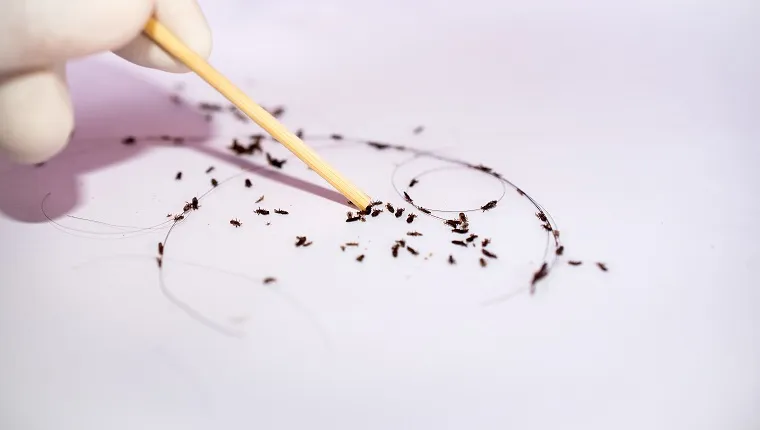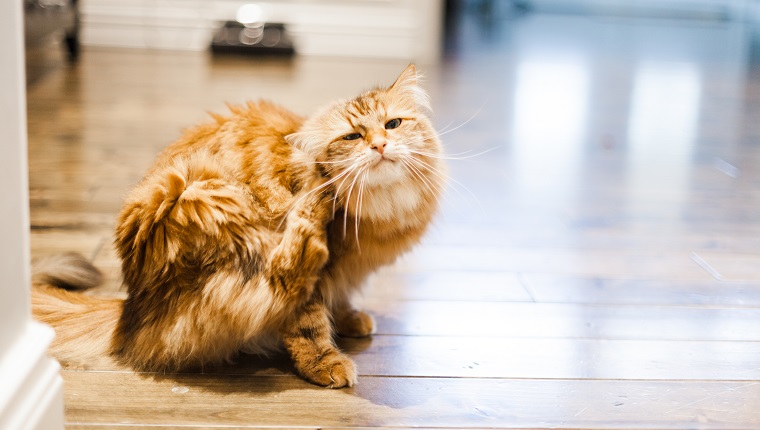Lice in cats are small parasites that feed on the felines’ blood. Along with causing discomfort and irritation, an untreated infestation can also lead to greater health concerns.
Thankfully, lice on cats cannot be transmitted from felines to humans. But if you see signs of excessive itching in your cat or other symptoms, then you must get to a veterinarian for a proper diagnosis and treatment.
Here’s what you should know about the symptoms, causes, and treatments for lice in cats.
Symptoms Of Lice In Cats
Symptoms of lice in cats mainly appear as itchiness and scratching more frequently and frantically than normal. However, fleas generally make cats itch more than lice.
Your cat might also start to develop patches of hair loss due to the excessive scratching, or they may have wounds from scratches on their skin. They may begin to look more unkempt than usual.
You may also notice tiny white dots in your cat’s fur, which may be easier to spot if your cat’s fur is dark. You can comb these out and shake them onto something that you can use as a dark background to take a closer look. If the dots move, they’re likely to be lice.
Causes Of Lice In Cats

The main way cats get of lice infestations is from one cat passing their lice on to another kitty.
Along with cat-to-cat transmission, these parasites can also be picked up in the following ways:
- Transmitted from bedding or fabrics
- Cats can no longer groom themselves
- A general unsanitary living situation
Treatments For Lice In Cats
If your veterinarian suspects that your cat has a case of lice infestation, they’ll examine your kitty and look closely for the parasites or their eggs. They’ll also ask about the cat’s scratching habits and will rule out any other conditions.
After confirming the diagnosis, your vet will likely prescribe a medication treatment, which might take the form of a shampoo. Always follow the instructions for administering medication to your cat exactly as prescribed, and don’t be afraid to ask your vet for help or clarification if you are unsure about anything.
After returning home, isolation is also key. Make sure that your cat stays away from any other household kitties until they’ve fully recovered. Also, make sure to treat your own living environment by washing all bedding and shared toys.
Once you think your cat has recovered, it’s important to return to the vet for another examination and professional confirmation.
Have you ever dealt with a case of lice in cats? What steps did your vet take to help your cat get rid of the parasites? Let us know in the comments section below.









